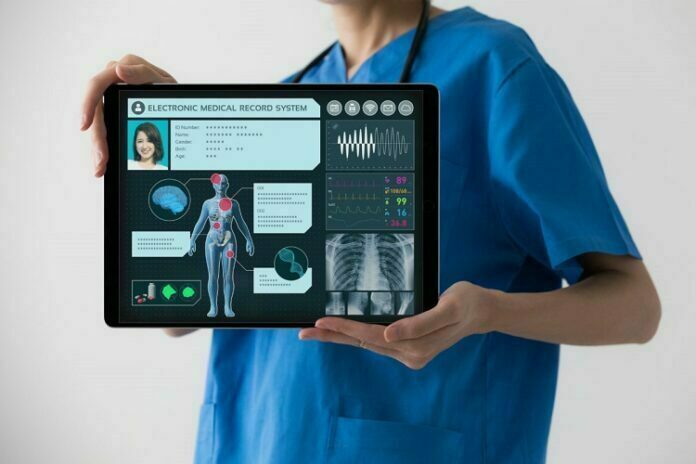Technology can and will continue to do great things for society.
Things that used to be difficult and time-intensive have become quick and easy, all because they have been transformed by our tech-centric world.
Unfortunately, there are times that the things meant to simplify our lives can open them up to dangers that weren’t an issue before.
It’s not uncommon to hear about identity theft, credit card theft, or hacked information.
Take a look at a sampling of some of the most publicized database breaches that happened in recent years:
- 140 million records of Ebay customers were breached.
- JP Morgan Chase had 83 million records accessed.
- The addresses of 70 million and credit card numbers for 40 million Target customers were breached.
In a time when many medical providers are now using EHR/EMR software to store and track patient data, it’s especially important to be vigilant about protecting the personal information of patients.
A breach of medical records may be not only financially costly, but it is certainly emotionally taxing, especially to the patients, who can have feelings of mistrust.
It’s important to take every precaution to protect the security of your patients’ medical information.
Table of Contents
The best safety measures
Consider this staggering statistic–between 2011 and 2012, almost 94% of all healthcare organizations had at least one instance of their data being breached.
Let’s talk prevention!
- Don’t forget the network. Firewalls and Antivirus software are, of course, vitally important. But, hackers have many different ways of breaking into systems. The IT team should also think about diversifying the networks so that a potential hacker who gets in doesn’t automatically have access to everything.
- Adequately train the staff. Anyone with access to the system should thoroughly educated on how to choose secure passwords, what actually constitutes a HIPAA infraction, and how attacks happen. Some security breaches happen purely from employee negligence!
- Encode mobile devices. Smartphones, laptops, and tablets are all gaining popularity with physicians and other medical personnel for use in a professional capacity. The problem is that mobile devices are much more easily lost or stolen. Any device that can access patient emr/ehr or any other personal data should be encrypted.
- Wireless networks should be secured. Wireless networks are used by many organizations today, though they are more vulnerable to security breaches. To head off any trouble, make sure passwords are changed regularly and that routers and other hardware are kept current.
- Implement a policy for portable devices. Most people have their own personal smartphones or tablets making it necessary to have a policy about what information can be stored on personal mobile devices.
- Eliminate unneeded information. Keep close tabs on the data that is stored and get rid of what isn’t absolutely necessary anymore. Information that isn’t there can’t be stolen!
- Have a plan. Sometimes, despite the best efforts of all involved, mistakes happen and hackers still find a way to get their hands on sensitive information. At that point, the best thing that can be done is to have a solid plan in place.
Technology’s influence in our world is only going to continue to grow. Instead of shunning it altogether in fear of what could go wrong, it should be embraced along with the vigilance and knowledge required to protect the private information of patients.




